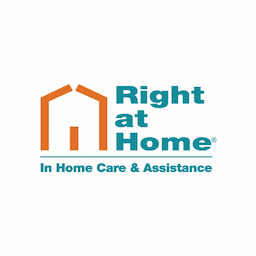Researching A Right at Home Franchise Opportunity
Due diligence is an important part of opening a new business, and a Right at Home franchise is no exception. A thorough research process ensures that both parties—the franchisor and the franchisee—are both going into this new experience with eyes wide open.
Due diligence is an important part of opening a new business, and a Right at Home franchise is no exception. A thorough research process ensures that both parties—the franchisor and the franchisee—are both going into this new experience with eyes wide open.
“This is a two-way street,” said Jen Chaney, Vice President of Franchise Development for Right at Home. “You’re doing research on us, and we’re doing research on you. It’s definitely not a one-sided process. It’s really important that it’s a perfect match for both parties.”
For Chuck Prentner and Trevor Steenholdt, Directors of Franchise Development for Right at Home, the process of determining whether or not a franchise opportunity is the right fit is something they take quite seriously.
“Legacy is really important to us,” said Trevor. “We have had quite a few owners who have passed businesses down to their kids, and it’s great to see. It really becomes a family business that serves generations of people.”
For those who are considering becoming a Right at Home franchise owner, the research process is not something to be taken lightly.
Step One: Initial Call
This first step is an initial information gathering call, and candidates are likely to meet Chuck or Trevor during this call.
“The initial call is just building the base of what the formal investigation is going to entail,” said Trevor. “We really want to learn more about you and we want you to ask questions of us. I love to see that someone has spent a little bit of time on our website before an initial call.”
This part of the process is very educational and straight-forward. Potential franchise owners can learn about monetary investment requirements, what the training process looks like, and generally get a better idea of whether or not Right at Home might be a good fit for them.
“I always like to make sure people understand that there is absolutely no commitment during the entirety of the investigation process, other than time and complete transparency,” said Chuck. “Our process is designed to find a great match for us, and for you.”
Step Two: Personal Profile Review
After the initial call, anyone who is interested in continuing on with the process will be sent a personal profile document to complete. The document helps the corporate office better get to know franchise candidates by asking questions about their financial information, professional background, and why they are interested in becoming a Right at Home franchise owner.
“The follow-up call is an hour, and we spend about 50 minutes of it going over your background. This is where we really start to see if it’s a good match,” Chuck said. “They have to really be passionate about seniors, providing care, and giving back to the community—all of this will come out in the personal profile review.”
Trevor likes to focus on different management styles and philosophies about management, employee recognition, examples of how they’ve navigated tough situations in the past, and how they’ve been able to foster a positive work culture with prior organizations and teams.
“It’s very important that you not only have focus on the care that’s provided to the clients that are receiving services but also have an equal focus on creating an amazing experience for the caregivers you’ll employ,” said Trevor.
“We’re not looking for people with medical backgrounds, rather we want people who will build a superior culture within their franchise,” added Chuck.
Step Three: Business Overview
After reviewing the personal profile with a Director of Franchise Development, candidates have the opportunity to gain deeper knowledge and greater education about the franchise relationship with Right at Home.
“This next call is the meat and potatoes of being a franchisee here,” Trevor said. “We go over the different systems our franchisees work with, like our CRM, our intranet system, and more. We talk about how support is delivered via the subject matter experts, business coaches, and online marketing specialists.”
Like the rest of the Right at Home franchise process, the call is not one-sided. It’s conversational and addresses the nuts and bolts of franchise ownership, through the full lifecycle of the business.
“It’s also important that everyone involved in the investment is present and participating in this call,” Chuck added. “If it’s a partnership, everyone has to be part of the Business Overview conversation. If everyone involved with the investment is an active participant in the evaluation process, having absolutely everyone involved in discussions with Right at Home will make sure the entire group has a complete understanding of the business.”
Step Four: Review the Franchise Disclosure Document
Candidates are given a copy of the Franchise Disclosure Document (FDD), which is a legal document that every franchisor in America is required by the Federal Trade Commission (FTC) to provide to potential franchisees. The FDD is the fundamental agreement between franchisor and franchisee. Right at Home’s FDD is nearly 300 pages.
“Before you sign the FDD receipt page, we schedule a call to ensure that the candidate has an understanding about what the document is,” said Chuck. “We don’t assume that you’ve read it, we take the time to make sure that you have. This is another call where it’s essential for all of the decision-makers, that will be part of the business, to participate.”
“The FDD receipt page is the very last page of the document and it’s required that all candidates sign it—every partner in the business. This is a requirement of the FTC, as they mandate that all franchise candidates have had at least 14 days to review the FDD before signing a Franchise Agreement, and the signed receipt pages is what documents that. That’s never an issue for our candidates though; our process, on average, takes about six to eight weeks.”
Even after signing the FDD receipt, there is still no official commitment for the franchise candidate.
Step Five: Franchisee Validation
At this point in the process, candidates have a good understanding of Right at Home systems, culture, and general knowledge. Armed with all this information, candidates are encouraged to connect with current franchise owners to talk shop.
“We invite you to have impactful conversations with our franchisees to talk about their experiences,” Trevor said. “We give you a list of every franchise owner in our system and require you to reach out to at least three of them. Most candidates will end up talking to about four to seven owners before the conversations start seeming repetitive. It really helps them learn more about the organization at the ground level.”
“There is nothing like talking to an existing franchise owner who is living and breathing this business,” said Jen. “It’s a truly invaluable conversation.”
Chuck recommends that candidates ask franchise owners about why they got involved in the business, if there’s anything they’d change about their experience, what their relationships with other franchisees are like, and inquire about their relationship with the corporate office.
“It’s best to focus on high-level questions that allow you to do a deep dive with other business owners,” Chuck said.
Step Six: Invitation to Discovery Day
The evaluation process leads up to a final interview with Jen, who will focus on the “why” behind a candidate’s desire to become a Right at Home franchisee.
“Jen will want to understand what’s driving you and why you’re doing this,” Chuck said. “Jen is the final gatekeeper to determine if it will ultimately be a good match. If everything aligns, Jen will invite you to Discovery Day.”
“We really focus on the compelling reason because it’s so important as a Right at Home franchise owner that you have a passion for this business,” said Jen. “The ‘why’ behind it is really important to us.”
Discovery Day and Beyond
Discovery Day, which is currently all virtual, is a formal full-day experience for new potential franchise owners. The day is broken up into two parts, separated by a lunch break.
“The first half of the day will give you time to talk to the various teams—support, engagement, and subject matter experts—that you would be working with here,” said Trevor. “After lunch, the day is really one-on-one interviews with the heads of departments across the organization.”
The Discovery Day experience is a chance to meet with the people you’ll eventually be working with closely, and they’re also the folks who will decide if you are awarded a franchise within the organization.
“The day is really important because it’s where you’ll hopefully receive final approval to purchase a franchise, but only if everybody agrees you’re the right fit for our concept,” said Trevor.
“A few days after Discovery Day, a scheduled a follow up call takes place to let you know our results, and for you to let us know yours,” added Chuck. “If you are approved you’ll sign the Franchise Agreement and pay your franchise fee within five days. Then, it’s time to hit the ground running!”
We can’t wait to start this process with you! If you’re interested in getting the process started, visit https://rightathomefranchise.com/
*This brand is a paid partner of 1851 Franchise. For more information on paid partnerships please click here.
MORE STORIES LIKE THIS
Leading In-Home Care Franchise Looks to Expand in Anchorage
Leading In-Home Care Franchise Looks to Expand in Erie, Pennsylvania
Right at Home Completes 9 New Signings to Date, Strong Momentum as Demand for In-Home Care Continues To Grow
Right at Home Supports Veterans Community Project to Improve Veterans’ Quality of Life in Kansas City

%2Fstory1%2F2718030%2F011a99beaa49ea2fe533a733526f167e5160_544x306.jpg&w=3840&q=75)

%2Fstory1%2F2726154%2Faa8589cf513103b95b4729d8d5237ecd6359_544x306.jpg&w=640&q=75)
%2Fstory1%2F2726140%2F4c202f23e088b8b7482841a6745c2c9b1940_544x306.jpg&w=640&q=75)
%2Fstory1%2F2726102%2Fd7d44436ca02b1d1ce2b57909456616d1034_544x306.jpg&w=640&q=75)
%2Fstory1%2F2725956%2F25cc2140a36c6b3def97bd007f0133ff1242_544x306.jpg&w=640&q=75)